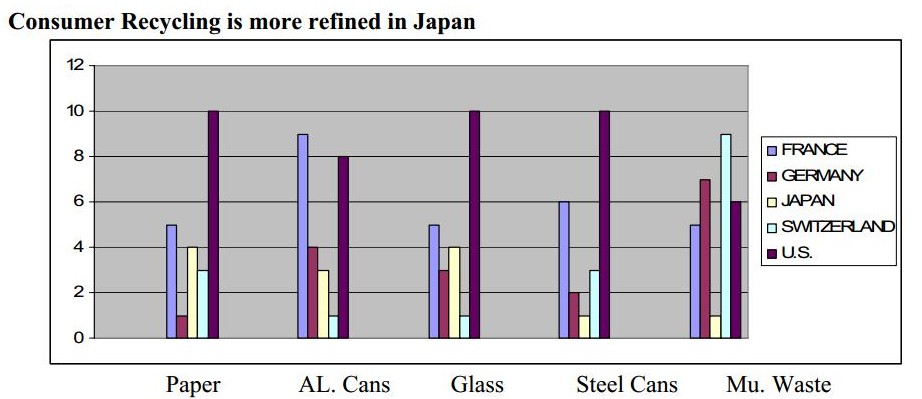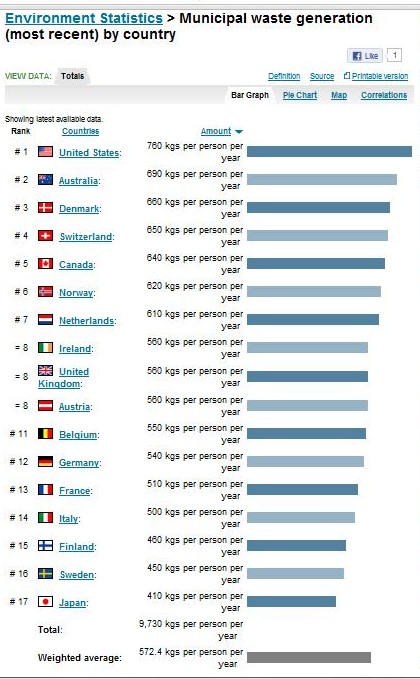June 3, 2012
Japan is a country with comparatively little natural resources, so it is not surprising that most Japanese people do not like to waste. However, it seems that conserving resources and not wasting is embedded in the foundations of Japanese culture. In Japan, it is polite to finish all the food on one’s plate, down to the very last grain of rice. But, there are even federal laws that require people to make the best use of their resources. First of all, every citizen is required to follow specific sorting rules for their waste (burnable, non-burnable, recyclable) which is collected by the city and stored for processing. Then, each year, recycling companies are required to collect the waste and transport it to the recycling facilities. To make sure the companies do their job, they are only paid once they show a delivery report signed by the receiving facility. Even more, businesses and manufacturers must pay a recycling fee that varies depending on the amount sold or produced. With all these regulations, it is not surprising Japan ranks very well compared to many other developed countries in terms of recycling.

Comparison of recycling in various countries ; a lower number is more favorable (Kim, 2004)
For burnable things which are not paper, aluminum, glass, or steel, Japan uses incinerators. There are huge pros and cons to both landfills and incinerators, as both still contribute to pollution, but Japan attempts to make the best of incineration by recycle even the ash byproduct. Incinerators do not completely destroy waste. Instead, they reduce the mass by 80–85% and the volume by 95-96 %. So, Japan uses the remains from incineration to produce cement. Still, with all the negative effects of both landfills and incinerators, of course the best way to protect the environment is to minimize the amount of waste produced overall. In this category, Japan still ranks well. In a survey done by the OECD Environmental Data Compendium, the municipal waste of 17 different developed countries was measured, and Japan had the least waste per capita with nearly half the amount of the United States.

Comparing municipal waste in 17 developed nations (OECD Environmental Data Compendium, 2002)
Japan is a great example for other countries to follow as in terms of waste and conservation of resources. If other places could learn to minimize waste and process it as well as Japan does, the world would be well on the way to becoming a little more environmentally friendly!